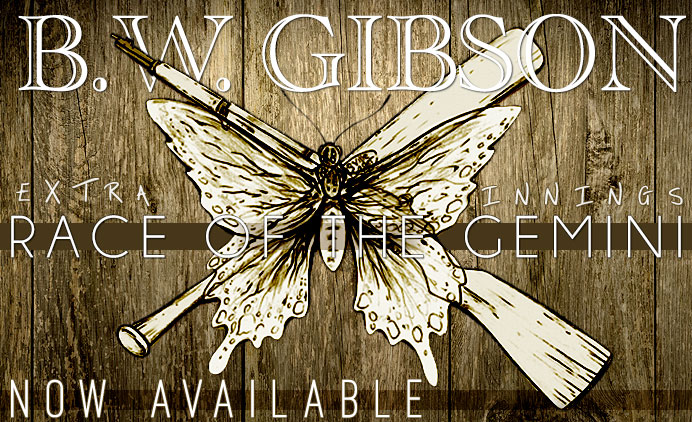Completing this sentence: “Niche Rhymes with …” all depends on how you pronounce the word “niche.” Some pronounce it “neesh” but I’ve always pronounced it “NITCH.”
Today’s blog title is referring to niche (‘nitch’) marketing and I’ve’ phrased it this way to suggest that this particular type of marketing CAN be a real pain in the @$$. Allow me to explain myself …
The goal of offering a new product or service is sales and customer satisfaction. In order to optimize this effort you must have a clever marketing campaign which communicates the value of your product or service to potential customers. Your niche is whatever category or area you specialize in. And within the entire marketplace there is a subset interested in your niche. The trick is effectively reaching these folks with the right target marketing. Some writers and bloggers may have a niche that makes it more difficult to reach their specific subset and when you’re a novice like me, it can feel like you’re fighting a losing battle.
Let’s start with bloggers. One of the most popular blog sites on the internet today is called bloglovin. Bloglovin makes it easy for blog enthusiasts to “follow their favorite blog as well as discover new ones.” Bloglovin features the most popularly searched blog categories on the internet. These niche categories include: Art, Beauty, Design, DIY & Crafts, Music, Books, Film, Fitness, Family and Travel to name a few. Nowhere among this list the most commonly blogged about categories do I see “Marketing” or “Target Marketing” or “Historical Fiction.” There’s not even a category for Writers & Poets. There is a category for “Books” but it’s is more for book reviews. I’m not blogging about book reviews. Since my blogs do not match one or any of those “most popular” categories I am, therefore, climbing a much steeper hill towards gaining followers. (My goal is to gain at least 2,000 followers by the end of this year). So see what I mean by the title I’ve chosen for this particular blog? If you’re not marketing within a popular niche it can become a struggle. I’ve been researching dozens of credible bloggers to help enhance my knowledge to write a good blog that will hopefully help or inspire new and emerging authors, however, my topics are not in a category that produces a large volume of followers.
For example, Celebrity updates and gossip is a very popular niche market. Just look at American Blogger Perez Hilton and the fame he’s self-generated. He’s stepped into the real of television personalities based on his blogs which generated hundreds of thousands of followers because he blogged about what people want to hear: Celebrity Gossip. Unfortunately, for me, identical twins Jimmy and Billy McGee of my books from the Extra Innings trilogy are not celebrities – although they do have some very interesting drama between them (especially in Books 2 and sadly Book 3).
Now let’s talk about writers. Marketing Expert in Small Business Success Kim T. Gordon recently wrote a great blog titled “3 Rules of Niche Marketing.”
http://www.entrepreneur.com/article/49608
The first rule she talks about is “Meeting Unique Needs.” I’ve read this article numerous times and I believe I am doing this with my blogs and especially my book. I spend a lot of times in Barnes & Noble perusing the historical fiction and young adult fiction aisles to study my competition. I feel this is a critical task for a new authors. These are some of the questions a new author should be asking themselves while they are researching their competition: Does your story provide something that is new and compelling? Are you speaking in the language of your niche market? Are you matched up to the key selling points, pricing and distribution method that your niche market requires? If not, you have some revamping to do.
I feel my books are well-tailored to the young adult readers who enjoy historical fiction, are family-oriented and concerned with racial injustice and social issues. Of course, it does help that the relationship between the 2 main characters, Jimmy and Billy, sparks some pretty juicy drama.
The difficulty I am having is communicating this to potential readers. Primarily because Book 1 focuses on a different theme than Books 2 & 3 which are more about young adult issues. What readers mostly perceive when they see the cover of Book 1 (The Diamond Thieves) is that it’s a baseball book. This is the primary theme of Book 1 but it’s wrapped around a much deeper and more controversial context. The boys are trying to secure usage of the school’s baseball diamond but their best friend, T.J., is black. Being that the Extra Innings trilogy is set in the Deep South circa the late 1940’s, T.J. becomes a main focal point with respects to the enemies (known as “the mob”) who are trying to take over the diamond from the twins and their friends. Much of our nation’s current morale foundation has been shaped by our past struggles with racial injustice. I wanted to show this town as a beacon of hope during a time of extreme intolerance. I like that the character who steps forward as the principle hero around this topic is not who the reader is expecting. It’s very endearing. This is actually one of the best parts of the story (aside form Chapter 12 which I have mentioned in past blogs is one of my favorite chapters out of every book I’ve ever read). The trick is, at face value, the book screams baseball. So I am missing a more important subset of the market. Baseball fans are not particularly going to get a re-invention of “The Sandlot” – if that’s what they’re looking for. So when targeting my niche marketing efforts I need to find a clever way to reach the young adult subset that would be interested in a story pertaining to social injustice in America without confusing them by the book’s title. I’ve been considering blogging more about topics followed by young adults. Although this would not help provide advice to new and emerging authors, which is my goal, it would help attract more followers from the subset of the market which is more likely to read Extra Innings.
Thoughts?


No Comments